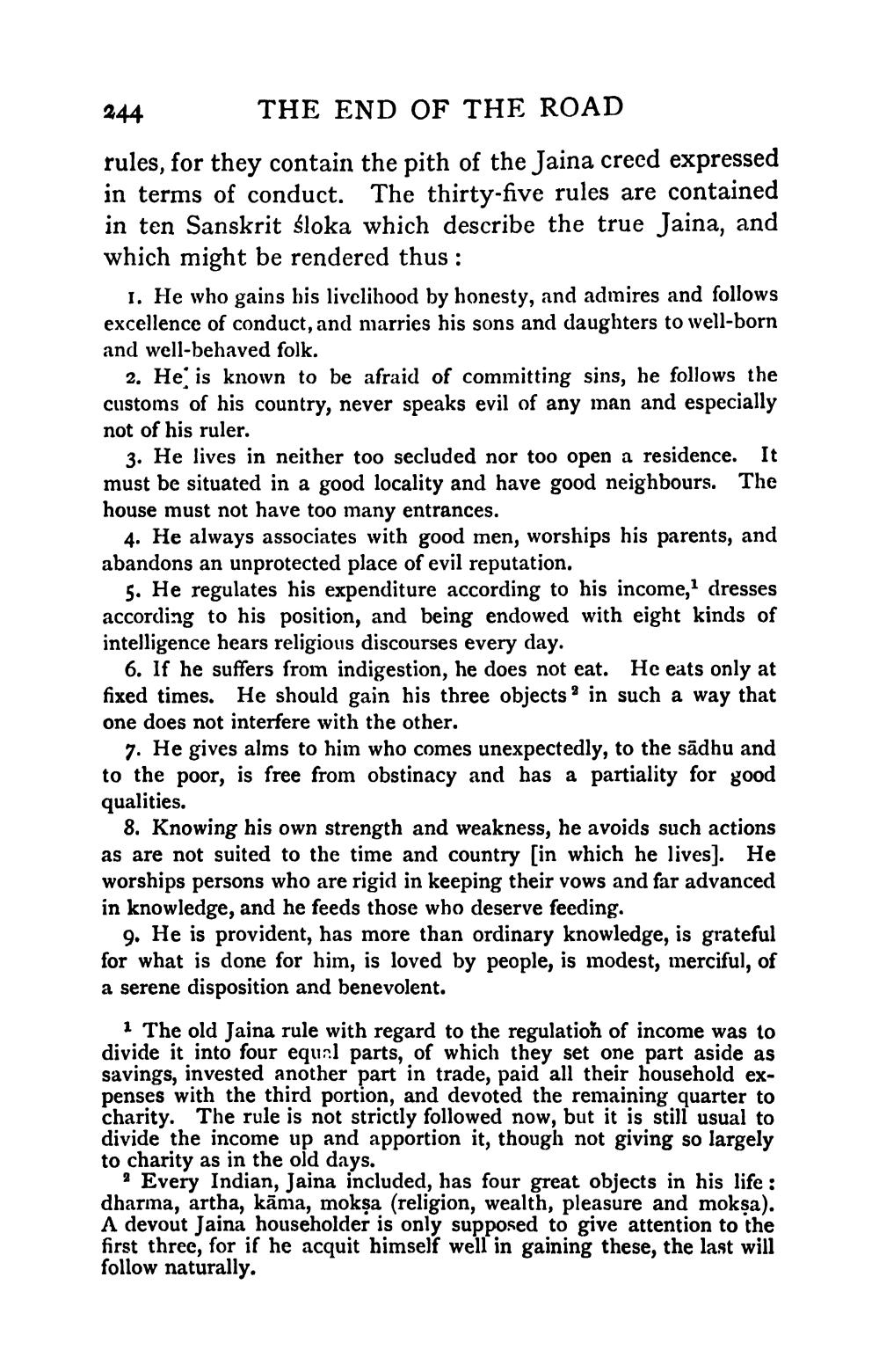________________
244
THE END OF THE ROAD
rules, for they contain the pith of the Jaina creed expressed in terms of conduct. The thirty-five rules are contained in ten Sanskrit śloka which describe the true Jaina, and which might be rendered thus:
1. He who gains his livelihood by honesty, and admires and follows excellence of conduct, and marries his sons and daughters to well-born and well-behaved folk.
2. He is known to be afraid of committing sins, he follows the customs of his country, never speaks evil of any man and especially not of his ruler.
3. He lives in neither too secluded nor too open a residence. It must be situated in a good locality and have good neighbours. The house must not have too many entrances.
4. He always associates with good men, worships his parents, and abandons an unprotected place of evil reputation.
5. He regulates his expenditure according to his income,1 dresses according to his position, and being endowed with eight kinds of intelligence hears religious discourses every day.
6. If he suffers from indigestion, he does not eat. He eats only at fixed times. He should gain his three objects in such a way that one does not interfere with the other.
7. He gives alms to him who comes unexpectedly, to the sadhu and to the poor, is free from obstinacy and has a partiality for good qualities.
8. Knowing his own strength and weakness, he avoids such actions as are not suited to the time and country [in which he lives]. He worships persons who are rigid in keeping their vows and far advanced in knowledge, and he feeds those who deserve feeding.
9. He is provident, has more than ordinary knowledge, is grateful for what is done for him, is loved by people, is modest, merciful, of a serene disposition and benevolent.
1 The old Jaina rule with regard to the regulation of income was to divide it into four equal parts, of which they set one part aside as savings, invested another part in trade, paid all their household expenses with the third portion, and devoted the remaining quarter to charity. The rule is not strictly followed now, but it is still usual to divide the income up and apportion it, though not giving so largely to charity as in the old days.
2 Every Indian, Jaina included, has four great objects in his life: dharma, artha, kāma, mokṣa (religion, wealth, pleasure and mokṣa). A devout Jaina householder is only supposed to give attention to the first three, for if he acquit himself well in gaining these, the last will follow naturally.




